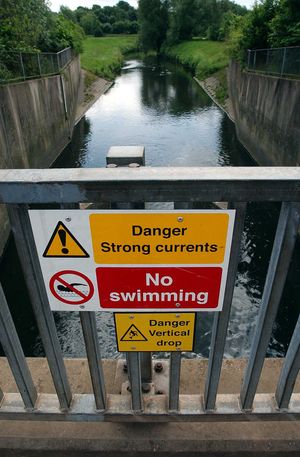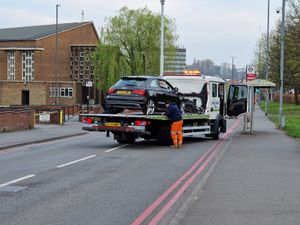River Tame is second most polluted river in Britain, survey finds
The main river running through the Black Country and Staffordshire is the second most polluted in Britain, it has been revealed.

The River Tame is 'acutely' contaminated by powerful insecticides – believed to pose a threat to bee populations and other insects.
The survey, the first of its kind which was mandated by EU water regulations, tested for neonicotinoids in British rivers. The Tame's very high reading indicated a probable 'industrial or disposal pollution event'.
Concerns are now also increasing over the impact on fish and birdlife.
The River Tame flows from its source in Oldbury to Alrewas in Staffordshire, passing through Bilston, Wednesfield, Bescot, Bentley, Wednesbury and Sandwell Valley along the way.
Neonicotinoids were banned from use on flowering crops in the European Union in 2013 due to the harm they cause to bees and other vital pollinators.
However, evidence is growing that neonicotinoids – the world’s most widely used insecticide – harm other species, such as songbirds. The insecticide has been in use since the early 1990s and now contaminates landscapes around the world.
The Tame became one of Britain’s dirtiest rivers following the industrial revolution, due to coal, iron and steel industries together with raw sewage. By 1945, nothing could live in it.
The new findings are a setback after the Tame became much cleaner due to a combination of the closure of these traditional industries and new environmental laws.
The study said the three toxins of most concern were used in farming and waste water treatment plants.
It found that 88 per cent of sites in Britain are contaminated, with eight rivers exceeding recommended chronic pollution limits, while two – the River Tame in the West Midlands and the River Waveney on the Norfolk/Suffolk border – were acutely polluted.
Initial inquiries with the Environment Agency suggest that there has been no regulatory response to the high levels of pollution detected, nor to the apparent pollution incident involving the Tame.
Mark Lloyd, chief executive of the Angling Trust, said: “Three years ago, we pressed the Environment Agency to sample neonicotinoids in rivers after academic papers showed that they can have a significant impact on insects, the main food for most fish.
"These results are highly alarming in the context of widespread declines in aquatic insect life and fish populations. We urge the government to act urgently to ban continued use of these chemicals to protect wildlife, fisheries and drinking water supply."
Matt Shardlow, chief executive of Buglife, which assessed the new river data, said: “We are devastated to discover that many British rivers have been heavily damaged by neonicotinoid insecticides. It is vital that action is taken to completely ban these three toxins, including in greenhouses and on pets, before another year of pollution occurs."




